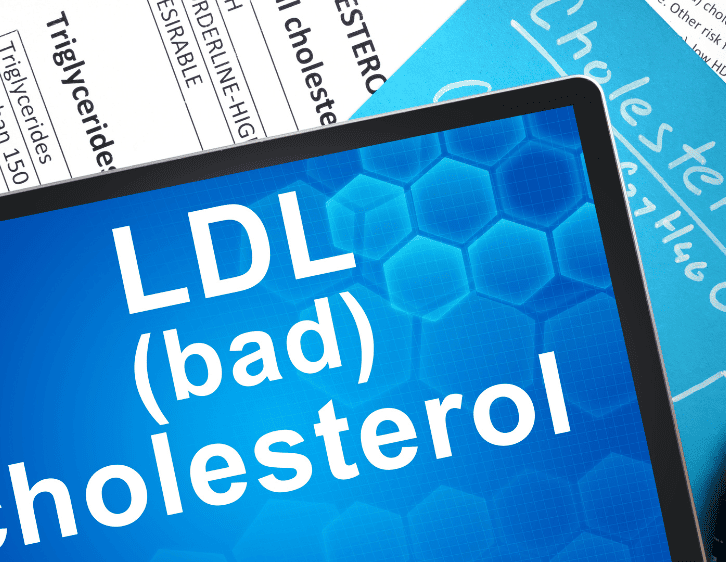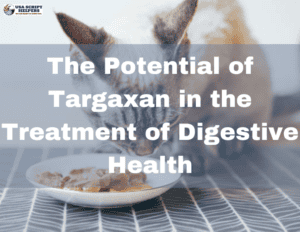Stroke, often referred to as a cerebrovascular accident, is a sudden disruption of blood flow to the brain, leading to the damage of brain tissue. The consequences of a stroke can be catastrophic, affecting an individual’s quality of life, and, in some cases, even proving fatal.
One of the most effective ways to prevent strokes is by lowering bad cholesterol. In this article, we will delve into the crucial role that lowering bad cholesterol plays in safeguarding against cerebrovascular issues.
Link Between Cholesterol and Stroke
Before we can truly appreciate how cholesterol affects our risk of having a stroke, let’s break it down in simpler terms. Cholesterol is a waxy, fat-like substance that our bodies naturally produce, and we also get it from the foods we eat. Think of it as a necessary building block for various functions in your body.
Now, here’s where it gets interesting. Cholesterol doesn’t travel through your body all by itself. It hitches a ride in your bloodstream on tiny carriers called lipoproteins. These lipoproteins come in different types, but the one we’re particularly concerned about is LDL, which stands for low-density lipoprotein. You’ve probably heard it referred to as “bad” cholesterol, and here’s why.
LDL cholesterol plays a somewhat troublesome role in our bodies. It tends to deposit excess cholesterol in our arteries. Over time, this can lead to the narrowing of our arteries, a condition known as atherosclerosis. When this narrowing happens in the blood vessels that supply blood to our brain, it can increase the risk of a stroke.
So, in a nutshell, high levels of LDL cholesterol can lead to the buildup of fatty deposits in our arteries, and when it happens in the arteries that go to our brain, it’s like a ticking time bomb for a stroke. This is why understanding and managing your cholesterol levels are crucial steps in preventing strokes. It’s all about keeping those vital blood vessels clear and free of blockages to reduce the risk of a cerebrovascular incident.
The Peril of Elevated Bad Cholesterol
Having high levels of “bad” cholesterol in your bloodstream can set the stage for serious health problems. So, what’s the deal with this “bad” cholesterol, also known as LDL? Well, think of it as trouble waiting to happen.
When you have too much LDL cholesterol in your blood, it starts to create problems. It’s like a sticky substance that can build up on the inner walls of your arteries, the blood vessels that carry blood throughout your body. This buildup is called “plaque,” and it’s not good news.
Picture this: Your arteries are supposed to be smooth and open, allowing blood to flow freely. But when this plaque forms, it’s like a gunky traffic jam inside your arteries. It narrows the space for blood to flow, and that’s where the danger lies.
Now, let’s focus on why this matters for your brain. The arteries that supply blood to your brain can also get clogged up by this plaque. When that happens, it’s like a roadblock in the blood supply to your brain, and that’s when the trouble starts.
This restricted blood flow to the brain is what we call a “cerebrovascular event,” or in simpler terms, a stroke. Strokes are like sudden interruptions in the normal flow of things in your brain, and they can have serious consequences.
So, the bottom line is this: Keeping an eye on your “bad” cholesterol levels and taking steps to manage them is incredibly important. It’s like clearing the traffic jams in your arteries to keep your brain and the rest of your body safe and healthy.
Lowering Bad Cholesterolreventing strokes by reducing bad cholesterol requires a comprehensive approach. This approach combines lifestyle modifications and, in some cases, medication:
- Lifestyle Modifications Dietary Changes: One must adopt a heart-healthy diet. This means minimizing saturated and trans fats while embracing foods rich in soluble fiber. Incorporating foods like oats, barley, and legumes into your diet can help reduce LDL cholesterol.
- Regular Exercise: Engaging in regular physical activity is vital. Exercise can help raise levels of high-density lipoprotein (HDL) cholesterol, which is often referred to as “good” cholesterol. HDL cholesterol helps transport excess cholesterol away from the arteries, reducing the risk of plaque buildup.
- Weight Management: Maintaining a healthy weight is key in preventing elevated bad cholesterol levels. Obesity is often associated with higher LDL cholesterol and increased risk of stroke.
- Smoking Cessation: Smoking not only damages blood vessels but also lowers HDL cholesterol levels. Quitting smoking is a crucial step towards stroke prevention.
Crestor: How It Helps Manage Cholesterol
Crestor belongs to a class of medications called statins. Statins work by reducing the production of it in your liver. By doing so, they help lower the levels of LDL in your bloodstream, which is the cholesterol that tends to create problems when it builds up in your arteries.
In addition to lowering LDL, Crestor also has a positive effect on increasing the levels of “good” cholesterol, known as HDL. HDL cholesterol acts as a kind of clean-up crew in your blood vessels, helping to remove excess cholesterol and preventing the formation of plaque in your arteries.
Benefits of Crestor
The primary benefit of Crestor is its ability to reduce LDL cholesterol levels, which is essential in managing high cholesterol and reducing the risk of heart disease and strokes. By keeping your LDL cholesterol in check, Crestor helps to prevent the buildup of plaque in your arteries, maintaining smoother blood flow throughout your body, including to your brain.
It’s important to note that Crestor is often prescribed alongside lifestyle modifications, such as a heart-healthy diet and regular exercise, to maximize its effectiveness. This combination approach can significantly reduce your risk of cardiovascular problems.
By understanding the link between cholesterol and strokes and adopting a comprehensive approach that includes lifestyle modifications and, when necessary, medication, individuals can empower themselves to reduce the risk of cerebrovascular issues. Remember that stroke prevention is not just a medical concern but a commitment to a healthier, happier life.
We hope you enjoy reading this information and if you want to reach out send us a chat message here on the site or contact us through phone. You can also connect with us on our Facebook page


















